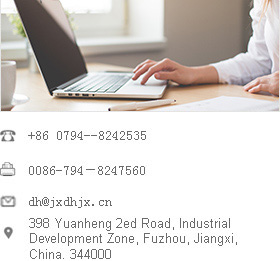
- DHP419 Series of PP Yarn Stretching Machine
- DH419D Series PP FDY Multifilament Spinning Machine HT
- DHP418 Series PP FDY Multifilament Spinning Machine MT
- DHKV 1235-12 Polyester POY Spinning Line
- DHPE Ultra High Molecular Weight Polyethylene Yarn Spinning Equipment
- DHTA Aramid 1414 Yarn Spinning Line


The Global goods trade climate index rose to 102.8 from 102.7 in December last year, consistently above the base point of 100, indicating that global goods trade is still showing growth and is expected to continue to grow in the first few months of 2025. However, increased trade policy uncertainty and potential new tariffs could weigh on trade in the middle of the year. The WTO calls on all countries to safeguard the multilateral trading system and consolidate the foundation of global trade recovery.
According to the World Trade Organization, the Global Trade Climate Index provides early signals on the short-term development trend of world trade by collecting trade statistics of major economies, and provides more timely international trade information for trade policymakers and the business community. The barometer of global trade in goods has a base line of 100, above which indicates sustained trade growth, while the opposite indicates a downward trend. The data released this time shows that the key data of global trade in goods are above the baseline. Among them, the export orders index was 101, the electronic components index was 102.3, and the raw materials trade index was 101.6, all at the trend level; The indices for automotive products, container freight and air freight reached 105.5, 103.7 and 102.7, respectively, all above trend levels.
Despite the growth in global trade in goods, the WTO also warned of uncertainty in major countries' trade policies. The export orders index is still close to the benchmark 100. The WTO believes that this indicator should be closely watched for signs of slowing trade in a timely manner. The WTO also believes that the possible outbreak of a new round of tariff wars will have a negative impact on global trade in the short to medium term, calling on countries to adopt more active policies to avoid a decline in global trade.
Coleman Nee, senior economist of the WTO's economic research and statistics Department, said in an interview with reporters that the current global trade is still in a relatively difficult period, and the main downside risk factors facing this year include weak economic growth in Europe, regional conflicts and geopolitical tensions. Countries should further improve their macroeconomic policies to stabilize economic development, so as to maintain the recovery of global trade. "Overall, the region's trade data are significantly above the global average, and we are optimistic that the Asian economy will continue to be an important force leading the modest recovery in global trade, both in terms of imports and exports." Coleman Nee said.
In the face of challenges such as the increasing fragmentation of global trade, Coleman Nee believes that trade is not part of the global problem, but part of the solution. Wto research shows that trade remains a powerful driver of global economic development and is an effective way to narrow the gap between low - and middle-income economies and high-income economies.
Declaration: The content of this article is organized from the Internet, and the copyright belongs to the original author; If there is infringement, please inform in time and contact to delete.







